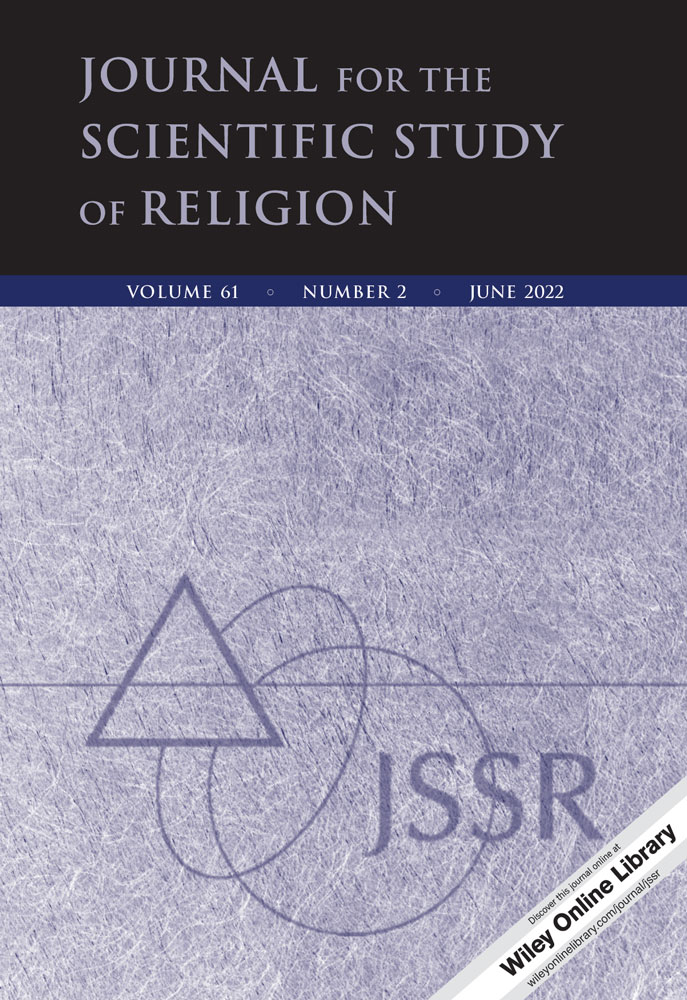Conservative Protestantism, Sexual Insecurity, and Masculine Discrepancy Stress
Abstract
Are conservative Protestant men especially insecure about their sexual prowess and masculinity? A recent state-level analysis by Perry and Whitehead suggests that they are. In this study, we use national data from the 2021 Crime, Health, and Politics Survey to formally test whether conservative Protestant men are more concerned with their sexual abilities and masculinity than other men. Bivariate and multivariate binary logistic and ordinary least squares regression models consistently show that conservative Protestant men tend to exhibit similar levels of sexual insecurity (self-reported performance anxiety, erectile dysfunction, and ED medication use) and masculine discrepancy stress (perceived failure to conform to normative expectations associated with hegemonic masculinity) as men of other religious faiths (moderate Protestants, Catholics, and other Christians/religions) and men who report no religious affiliation. Our analyses are noteworthy because they call into question the theory of evangelicalism and phallocentric masculine insecurity at the individual level.




